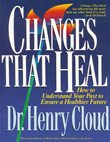The rise in gay teen suicides is alarming and heartbreaking, whether it is an actual rise in suicides or a rise in the reporting and awareness of these needless deaths. Five teens killed themselves in a recent three–week period because of bullying or “outing,” but no one knows for sure how many there are.
Teens who experience same–sex attractions are already stressed simply by the difficulties of adolescence. This is painfully exacerbated by the confusion that accompanies unwanted desires and feelings that make them feel “other than,” different, like they don’t belong. Many of those who struggle with gay and lesbian feelings are very emotionally sensitive, and they can feel their pain more deeply than many of their classmates. They can easily buy into the lies that life is too hard, the challenges too daunting, that the hopelessness is too overwhelming.
When one factors in the excruciating pain of being taunted and bullied for even being perceived as gay or lesbian, the shame can become too much. If one is overweight, there is a possibility of losing weight; if one is a poor student, there is a possibility of working hard and studying to do better. But if one feels disconnected from and unaccepted by their same-sex peers, and if they can’t explain and did not choose the attractions that plague them, then most students will despair, believing there is no hope of anything changing. This is especially true for those who have prayed—many of them every single day—for God to take away their feelings, and He doesn’t seem to answer. (There are good reasons for this, but they don’t know that.) Gender identity is at the center of one’s identity; what do you when you don’t feel comfortable in your own skin?
Given these stresses, Christians could and should be the first ones to reach out to the marginalized, the ostracized, and the bullied. Every single person is precious to God, made in His image, and deserving of dignity and respect.
The emphasis needs to be on “teen suicides,” not “gay suicides.” Any time a young person takes his or her own life it is horrific and unacceptable—and, may I repeat myself, heartbreaking.
I am grateful for the way the media is highlighting the problem of bullying. This is a problem we can do something about—regardless of our particular beliefs about sexuality.
My friend Randy Thomas, executive vice–president of Exodus International, responded to the highly publicized suicide of Rutgers University student Tyler Clementi on the Exodus blog (Exodus is a ministry to those dealing with unwanted same-sex attractions):
Christians we need to speak out strongly against bullying and condemn vicious and violating behavior like this. God is the author of every breath. As long as there are Tylers in this world we have to defend their right to freedom and self-determination. We must afford them at least the very basics in human respect [and] dignity and defend them from those [who] would exploit and abuse them . . . . God is the author of every breath, and when we look into the face of another we are seeing a dim reflection of Him.
Whether they know Him or not.{1}
Christians should be at the forefront of the anti-bullying movement. Bullying is the opposite of the second greatest commandment, to love our neighbor as we love ourselves (Mark 12:31). The Gospels are full of stories of Jesus standing up for the underdog; consider how He stood up to the religious bullies who had entrapped a woman caught in adultery (John 8). When it comes to bullies, what would Jesus do? Stand up to them. Defend the bullied. Communicate that they are precious, valued, and loved.
I have read a number of stories of people who were bullied when they were growing up. I can’t imagine how difficult it is to live through the painful isolation and rejection, of feeling that no one cares and nothing can fix the problem (apart from the bullies disappearing). I can’t imagine how painful it is to see teachers, bus drivers, and other adults say nothing and do nothing to come to the defense of kids being picked on—for being different, for being new, for being “other than,” for no reason at all other than the arbitrary attack of someone who felt small, and who bullied someone else to feel “bigger than.”
To understand the problem of gay teen suicides, it’s helpful understand the issues for gay teens (please see my article “Helping Teens Understand Homosexuality.”) We also need to understand more about bullying and what to do about it. The very wise and experienced Dr. Allan L. Beane offers “Tips for Parents, Assertiveness Skills for Students Who Are Bullied” and “Assertiveness Strategies for Siblings and Other Students (Bystanders)” on his web site.{2}
Parents, pastors, youth workers and students need to encourage one another to stand up against any bullying of any student. There is strength in numbers, especially when it comes to dealing with a bully, although it only takes one voice to say, “Stop it.” Experienced teachers say a no-tolerance policy toward bullying is essential to taking power away from bullies. The key is the community—the school, the church, the neighborhood, the youth group: when the community says nothing, bullying explodes. When the community refuses to allow bullies to exploit others’ weaknesses, it is quenched.
At the same time, however, as we encourage teens to reach out to their marginalized peers by standing with them against their bullies, we don’t want to be naïve. Although community pressure on bullies to stop often works, Scripture makes it clear that living like Jesus and standing up for the outcast will not be easy. Just as the Pharisees were upset by the way Jesus interfered with their social hierarchy, so too things will get sticky for those who upset those at the top of the social ladder. High school bullies are often at the top of the social food–chain. We need to prepare our students for the teasing and bullying they very likely will face for defending the marginalized, reminding and encouraging them that being persecuted for doing the right thing is to be expected, and is part of what makes the hope we have in a world and a kingdom beyond this one so sweet.
Gay teen suicides happen when students feel alone and isolated, when they feel “other than” and feel judged for that other-ness. Many of those who find themselves attracted to other boys or other girls are already uncomfortable with their desires; most of them try to pray or wish them away, but that’s not how those feelings are changed into the God–given, normal attractions for the opposite sex.
We can do something to prevent more gay teen suicides. The most influential people in gay teens’ lives are their peers, whose affirmation or shaming holds extreme power. But teens need to be instructed in how to fulfill the second greatest commandment, in loving their neighbor. We can teach them that all young people need to be loved, to be accepted as people made in God’s image, to be valued. They all need the “three A’s”: attention, affirmation, and affection. If sexually confused or gender-insecure teens, who are often marginalized by the other students, experienced Christians reaching out to them in friendship, simply communicating the grace of acceptance and value, that could make a big difference. It can be choices as simple as inviting someone to sit with them at lunch, or telling others to “lay off” if they make insulting and negative comments about one of those marginalized students. They can even say affirming things to the bullies like, “Hey. You’re better than that, dude. Leave him alone.”
Jim Wallis recently wrote something stellar in a blog post on “Christians and Bullying”:
My mother used to give us kids two instructions:
1. If there is a kid on the playground that nobody else is playing with—you play with them.
2. If there is a bully picking on other kids—you be the one to stand up to him or her.{3}
Being “Jesus with skin on.” That’s how teen suicides, regardless of sexual identity, can be prevented. May God use His people to love these hurting young women and men whom He loves dearly.
Notes
1. Thomas, Randy, “Step Up, Speak Out Against Bullying: The Tragic Case of Tyler Clementi,” Exodus International Blog, posted Oct. 1, 2010, accessed Nov. 11, 2010: blog.exodusinternational.org/2010/10/01/step-up-speak-out-against-bullying-the-tragic-case-of-tyler-clementi.
2. Beane, Dr. Allan, Bully Free Program, “Tips for Parents” and other posts: www.bullyfree.com/free-resources/tips-for-parents accessed Nov. 11, 2010.
3. Wallis,Jim, “Christians and Bullying: Standing with Gays and Lesbians,” God’s Politics blog: blog.sojo.net/2010/10/21/christians-and-bullying-standing-with-gays-and-lesbians, accessed Nov. 11, 2010.
© 2010 Probe Ministries
 One of my favorite explanations comes from Dr. Henry Cloud in his book Changes That Heal. He gives a delightful application to one of Jesus’ parables in Luke 13.
One of my favorite explanations comes from Dr. Henry Cloud in his book Changes That Heal. He gives a delightful application to one of Jesus’ parables in Luke 13. As more and more states are either legalizing same-sex marriage or willing to recognize same-sex marriages from other states, it is crucial that Christians know how to answer arguments for same-sex marriage. We will look at some of these arguments and provide answers from my book, A Biblical Point of View on Homosexuality.
As more and more states are either legalizing same-sex marriage or willing to recognize same-sex marriages from other states, it is crucial that Christians know how to answer arguments for same-sex marriage. We will look at some of these arguments and provide answers from my book, A Biblical Point of View on Homosexuality.